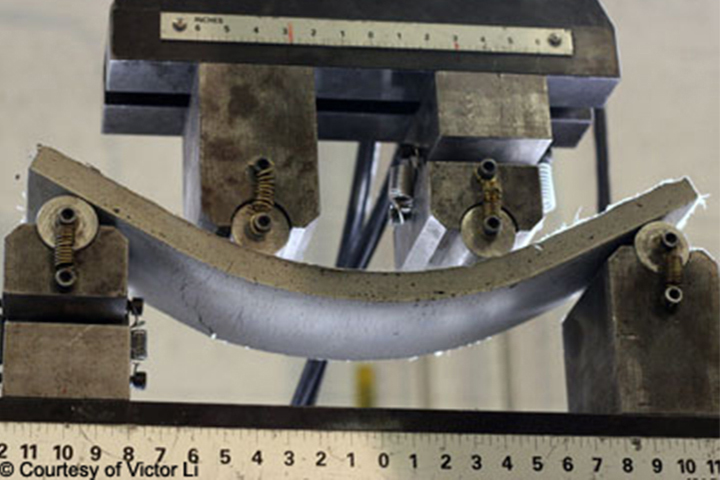Development of Green Durable Concrete for Truly Sustainable Infrastructure
Development of Green Durable Concrete for Truly Sustainable Infrastructure
Development of Green Durable Concrete for Truly Sustainable Infrastructure
Program: UM-Brazil Sustainability Cooperation Grants
All UM-Brazil Sustainability Cooperation Grants projects »

U-M Investigators
Victor Li - College of Engineering (Civil & Environmental Engineering, Materials Science & Engineering)
Collaborators
Holmer Savastano, Jr. - University of Sao Paulo
Project Summary
Engineered cementitious composite (ECC), commonly known as “bendable concrete,” is a new type of building product that is extremely strong, yet flexible. It also has self-healing properties that make it more resistant to cracking and corrosion. Despite its value as a building material, the production of ECC is highly energy intensive, making it less “green” than conventional concrete. Through a research collaboration between the University of Michigan and the University of Sao Paulo, engineers demonstrated feasibility for a “green ECC” developed using natural fibers from the Curauá plant, which is cultivated in the Brazilian Amazon, in place of polymer fibers. They estimate that replacement of even 1% of conventional concrete with this green ECC alternative could significantly reduce CO2 emissions, production costs, energy consumption, and infrastructure maintenance costs.
This project received a $10,000 UM-Brazil Sustainability Cooperation Grant in 2013.